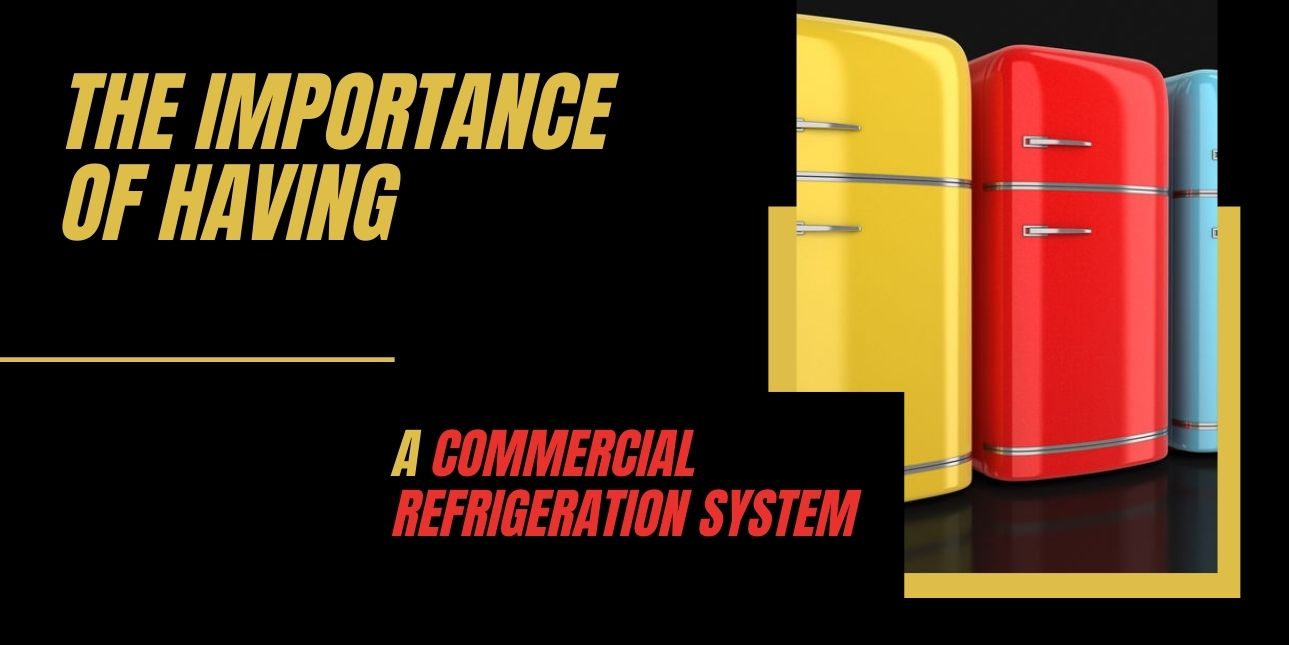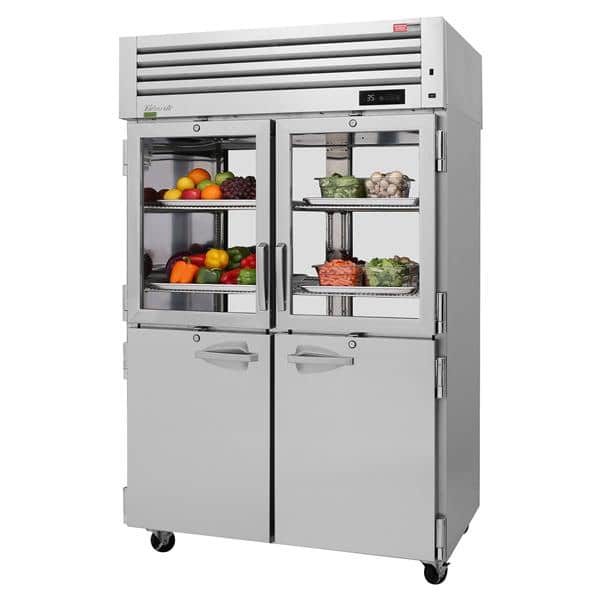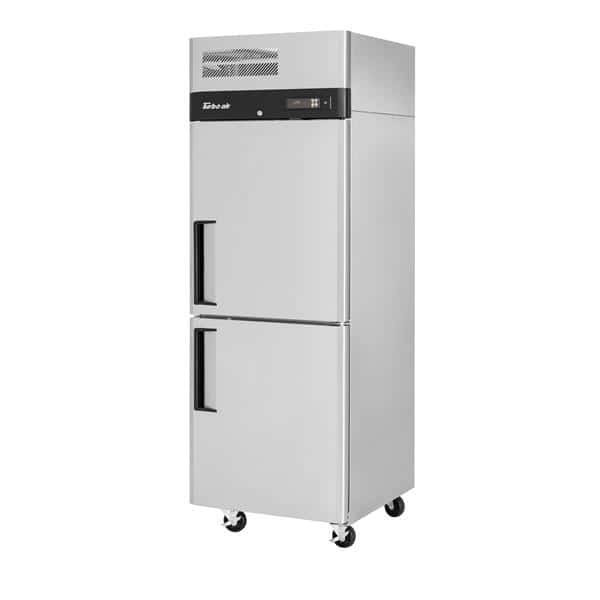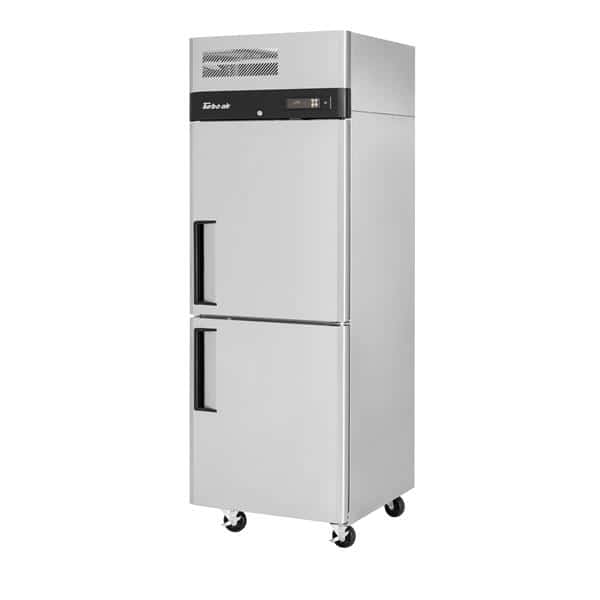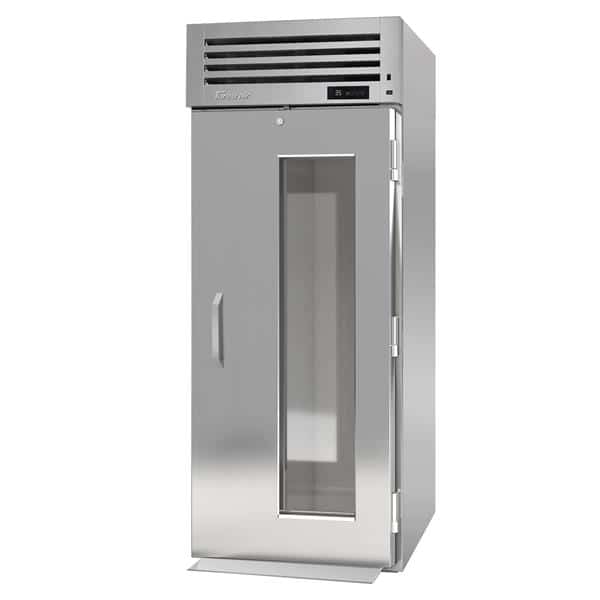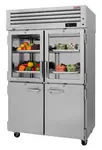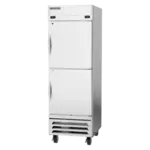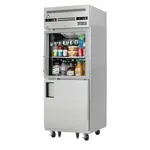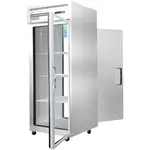Commercial refrigeration systems are most often used in restaurants, supermarkets, grocery stores, and most hospitality industry facilities. These units are different from your basic refrigeration system in many ways, including what foods and beverages can/should be stored in them, their storage capacity, and so much more.
Commercial Refrigerators: What Do They Do?
Commercial refrigeration systems surpass basic refrigeration systems in several ways. Your basic refrigerator’s dimensions fall between 10 and 25 cubic feet and holds your standard food and beverage items. On the other hand, commercial refrigeration systems can range between (on average) 25 cubic feet and up in size. These units are designed to house bulk items, and those items can and will vary depending on who's using them.
Different Types of Refrigeration Systems
When it comes to commercial refrigeration systems, there are several different types of systems worth checking out, including:
Reach-In Refrigerators
A reach-in commercial refrigerator is a stationary floor unit designed for back-of-the-house applications/storage. They are frequently used in the foodservice industry since they can hold large quantities of food and various ingredients.
Pass-Thru Refrigerators
Pass-thru coolers are commercial refrigerator units that can be used in the middle of an establishment and allow your back-office staff to place food and ingredients into the unit from the back and front-end staff to access these items. What makes these units different than standard reach-in units is the fact that pass-thru units have doors on both the front and back of the unit, allowing staff to "pass-thru" varying ingredients and food as needed.
These are frequently used in most supermarkets and grocery stores in the refrigerated and frozen food sections.
Roll-In Refrigerators
Roll-in refrigerator units are units with wheels underneath them, allowing them to be moved from location to location with ease. These units are often displayed at the front of establishments that offer sodas or individual ice creams for sale. These can also come in the form of display units that offer your customers a view of what you are selling if you are in the restaurant or bakery business.
Roll-Thru Refrigerators
Roll-thru refrigerators are similar to pass-through refrigerator units; however, these units share the same feature as a roll-in refrigerator – a set of wheels that allow the unit to be moved around as needed. These are excellent units for placement in supermarkets as the doors in the front and back of the unit allow your staff to load the unit while your consumers can take things as needed.
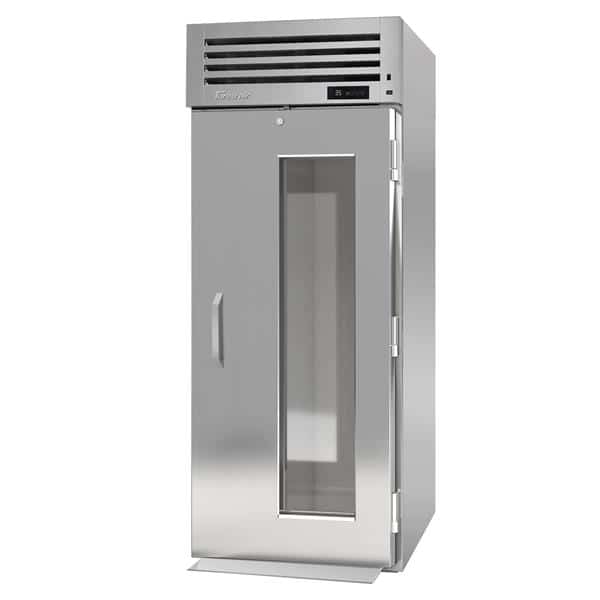
How Does a Refrigeration System Work?
In a nutshell, a refrigeration system works by removing heat from the items stored in the unit, helping to keep them cool and safe for serving.
The entire process, however, gets a little more complicated. In fact, to cool the food inside your unit, the use of gas – either Freon or tetrafluoroethane is required. When these gases expand, they begin to cool, and when items in your refrigerator are warmer than the gases in the unit, they will start to cool to match your refrigerator's temperature.
This is completed through the following process:
The gas is moved through the unit's compressor, heating it up so it can move through the various coils of the unit. It begins to cool down as it travels, and while it's still under pressure, it will change from a gas to a liquid. Once it's in liquid state, it's moved through a valve and enters an area of low pressure, heating back up and back into a gas. This gas then moves through the freezer/refrigerator, which pulls the heat from the area, resulting in a cool unit.
The Importance of Having a Commercial Refrigeration System in the Food and Hospitality Industries
Having the right commercial refrigeration system is vital for those in the food and hospitality industries. It not only allows you to serve the needs of consumers but it also allows you to do this safely. Smaller, standard refrigeration systems don't have the capacity to cool large batches of food or maintain the necessary temperatures required to keep certain foods and beverages at a safe storage temperature.
With all the options currently on the market, it can be easy to get overwhelmed when trying to pick out a refrigerator system that meets your need.
What to Consider When Purchasing a Commercial Refrigeration System
Knowing what you need and what to look for in a commercial refrigeration system can help calm any unease when looking through your options. Not quite sure where to start? Here are a few things you'll want to consider before you shop:
- Storage Requirements: You need to take inventory of your storage needs before ahead of time. Will you require minimal storage for prepackaged goodies for hotel guests? Or will you need large, refrigerated display cases that allow your consumers to peruse your baked goods before placing their orders? You want to make sure you consider display needs, ingredient storage needs, and batch storage needs. Once you have an idea of what your storage needs are, you'll be able to determine the size of the units you will need.
- Type of Refrigeration Needed: Commercial refrigeration systems include more than your refrigerator. They include your freezer as well. Another decision you'll need to make is what type of cooling gas you'll want to utilize. Freon has been the most commonly used for years. However, they have since been deemed harmful to the environment, and most newer units now utilize tetrafluoroethane instead.
- Purchase Cost/Cost of Operations: Finding the perfect unit doesn't end once you've found the best-looking piece or the one with the ideal amount of storage. You also have to make sure it fits into your budget both initially and in the long-term. Commercial refrigeration systems are not a one-time expense. They are run continuously and require constant maintenance to remain in working order, keeping the food you serve safe for consumption.
Of course, this is by no means an exhaustive list. However, these are some of the most vital factors you'll want to consider when switching a refrigeration system out for a new one.
Choosing the Right Commercial Refrigeration System for Your Needs
Choosing the right commercial refrigeration system for your needs doesn't have to be an exhausting experience. Take the necessary time to plan out the process, outline your needs, and research various brands to see who has what you need. You'll then be able to make a purchase you can be confident about.

